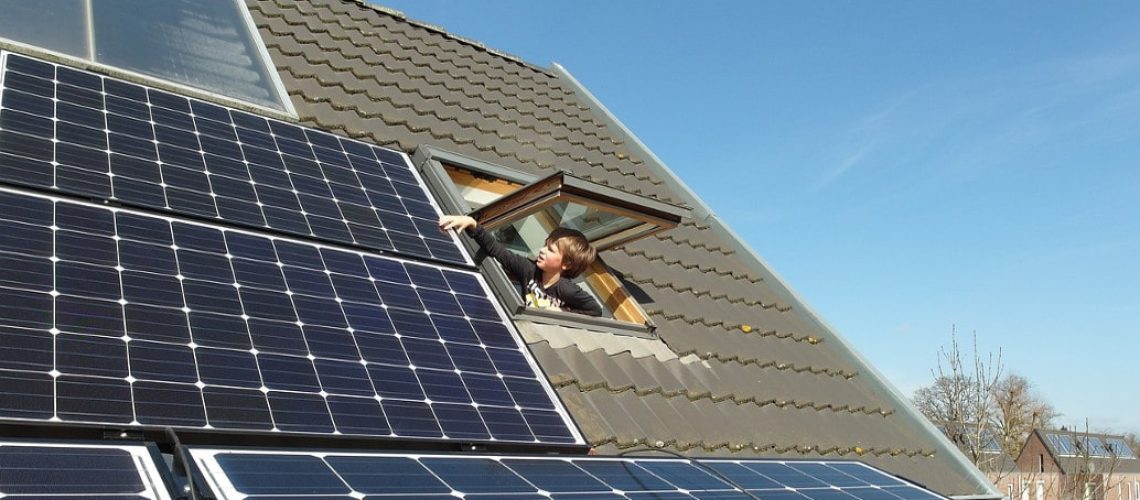The North Carolina Supreme Court is set to rule on Belmont v. Farwig, a case that will set precedent for homeowner’s associations to prevent the installation of solar PV.
Solar access laws are commonplace in the United States, especially in communities managed by homeowner’s associations (HOA). Often, solar-hopeful customers can be blocked from exercising their choice to purchase and own locally generated clean energy in the form of rooftop PV.
In North Carolina, a case has elevated to the state’s Supreme Court, one that is set to challenge the solar access laws that have been in place since 2007. The case, Belmont v. Farwig, raises a question of when planned communities are allowed to use an exception in the access laws to prevent street-facing solar panels from being installed.
Tom Farwig argues his HOA cannot block his rooftop solar plans, as the community rules don’t expressly prohibit it. Conversely, Belmont Community Association, argues that Mr. Farwig’s solar array can be considered an “improvement,” which is something that the group has the authority to reject, regardless of whether it is an improvement explicitly listed by HOA rules.
Belmont found favor in the state’s Court of Appeals, but the rooftop solar industry, environmentalists, and North Carolina’s attorney general have filed statements in support of Farwig’s complaint.
“If an HOA, completely subjectively, does not like the look of solar panels, these homeowners are essentially forever denied access to solar,” said Bryce Bruncati, director of residential sales for 8MSolar, a member of the Sustainable Energy Association.
Roughly 40% of North Carolina homes are controlled under 14,000 HOAs throughout the state. The ruling could have a large impact on rooftop solar deployment going forward.
Like many solar companies, Farwig’s chosen rooftop solar developer Blue Raven solar does not schedule an installation until HOA approval is achieved. Blue Raven has an entire division devoted to dealing with HOA rules, and it testified in a brief to the court that it has lost at least 500 potential solar customers in the state due to HOA interference.
In this case, a mistake was made, and Blue Raven installed the panels before securing final HOA approval. The company supplied a permit after installation when the community requested it five months later, and even supplemented the permit with signatures of 22 Belmont residents that supported the installation of their neighbor’s panels. However, Belmont denied the permits several times.
The reason for denial? Belmont found that the array would “be aesthetically unpleasing as viewed from the public street.”
Then, Belmont began charging Farwig $50 a day to keep his property out of foreclosure, which he paid. The HOA then placed a lien on his home. This is when Mr. Farwig decided to countersue, alleging that solar access laws had been violated.
Since the conflict began, Mr. Farwig has paid over $52,000 in fines to his HOA for having thin rectangles of electricity-producing silicon on his otherwise unproductive roof. Blue Raven has publicly committed to paying the fines for Mr. Farwig, taking responsibility for the mistimed approval request.
Language in the 2007 solar access law suggests that HOA’s cannot ban solar explicitly or effectively, and that it can only bar front-facing solar arrays if it explicitly lists them in its community rules. “This statute is putting developers and associations on notice: ‘If you want to try to ban this very important access, you have to put it in your declarations,’” said James Galvin, Farwig’s representation.
Furthermore, General Assembly law ensures that homeowners must have a say in the operation of their HOA. If the HOA wants to add further barriers to solar, it must be approved with a two-thirds majority vote by residents.
Last year, the state’s House of Representatives passed legislation that removed the front-facing exception, and instead gave control to HOAs to dictate panel placement, as long as there isn’t more than a 10% impact on production. This may be a more solar-friendly law in effect, as moving panels to the wrong azimuth can have dramatically negative effects on production.
Belmont attorney Brian Edlin argued that legislation, and not the courts, would be the best place to determine North Carolinians’ right to go solar. Edlin said if homeowners want to expand their solar rights, “they can go to the legislature and they can pass a new law that deletes (the exemption)”.



